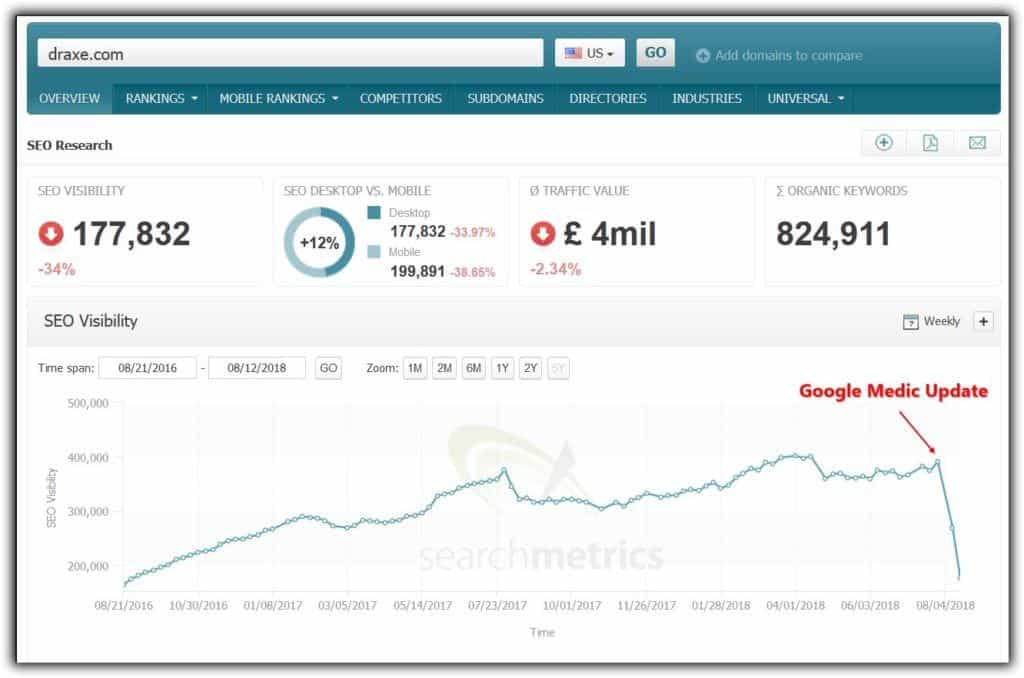Estimated Read Time: 6 Minutes
Search engine optimization (SEO) is an ongoing process and not a one-time event. It is a process because the market, the competition, and the companies that set the rules (search engines) are constantly changing and evolving.
So should you.
The Market Is Constantly Changing
Apple introduced the iPad on January 27th, 2010. Before that, if you were a technology retailer, you did not have to worry about ranking for the word “tablet”. If someone walked into your store and asked for one, you probably would have referred them elsewhere.
Now, of course, just about everyone knows that a tablet is, among other things, an electronic device. But even since 2010, it has evolved. There are now IOS, Windows and Android tablets. They come in varying weights, sizes, and colors with different processors, speeds, storage capacities, screen resolutions, and capabilities. If you search or shop for a tablet now, you have to use specific terms in order to find exactly what you’re looking for.
Naked dresses, fake news, Game of Thrones, and the Me Too movement are similar terms. No one searched for any of those a decade ago. Now, if they do, they’re searching for specifics.
Language evolves. Market wants and needs evolve. Something that may have no bearing on your business today, could become a huge business driver tomorrow.
SEO is a process because we can’t always anticipate what’s coming next. The language on your website has to keep up with market demands and reflect the language being used by your peers, prospects, and customers. If you stand still, you’ll be left behind.
The Competition Changes
The competitive field changes just as quickly. Every time a new piece of content is published, there is a possibility you will face new competition.
For example, Yahoo published a fast-food breakfast taste test in July 2013. It compared the different market offerings of McDonald’s, Taco Bell, White Castle, Burger King, Dunkin Donuts, and Starbucks. A few years ago, half of those companies didn’t offer breakfast. If you were a niche restaurant owner differentiated by an all-day breakfast menu, you would have recently found yourself having to compete with some of the largest fast-food brands in America. Not only that, because Yahoo had published an article about fast-food breakfast, but you may also have found yourself competing with them too.

It’s not only product offerings that change. Sometimes a competitor that paid previously no attention to SEO suddenly decides to get into the game and ramp up their efforts to outrank you.
Competitors and their offerings come and go. The tactics they use to attract and retain customer attention can vary from day-to-day. SEO is a process because the competitive market can change daily.
Search Engine Rules Change
SEO is an ongoing process and not a one-time event because the rules search engines use to decide who ranks where change daily.
I’m not kidding. Daily. Matt Cutts, Google’s once official “search” spokesperson, once stated, “… we tend to make a change to our core search algorithms at least once a day… 350 to 400 times a year”. Moz, a respected search engine optimization thought leader, believes Google changes its search algorithm 500-600 times a year. Whether it’s 350 or 600, it is a lot!
Google changes its ranking algorithm daily because it is always testing new ways to improve results and prevent people from gaming the system. Google works tirelessly to prevent cheaters from gaining an unfair advantage. It is in their own best interest to ensure customers find what they need so they can continue to drive advertising revenue and keep their shareholders happy. Google employees are proud of their search engine. Continuous improvement keeps morale high and outcomes superior.
Here’s a recent example of a major Google algorithm update.

Beginning in late July 2018 and into the first week of August 2018, Google released a major update deemed the medic update. The medic update largely impacted sites in the medical, health, fitness, and healthy lifestyle space. The worst-hit websites lost between 28 and 67 percent of their traffic in one week. Sites that benefited gained between 19 and 75% more traffic over that same time period. Regardless of what specifically caused the ranking drops and gains, the point is the same. SEO is a process because rankings change daily. What works today, might not work tomorrow.
What This Means For Small Business Owners
Small business owners should accept SEO as an ongoing business requirement – just like any other form of marketing and advertising. You have to invest for the long haul.
I think doing SEO halfway or giving up prematurely is a waste of time and money. Unless you’re doing paid advertising, SEO takes 2-4 months before you can begin to see results. It can take a lot longer depending on your current situation and the competition. A good SEO can help set your expectations accordingly.
A Note About Cheating
People ask me if cheating works. They’re a small business with limited funding and many competing demands for their time and money. They (of course) want to limit the demand on their time and budget as well as speed up the process.
The answer is you can, and many do employ “black-hat” tactics that go against Google guidelines, expedite results, and lessen the amount of work that needs to be done. Those actions, however, come with risk.
Remember one of the reasons Google employs daily algorithm updates is to combat undeserving websites trying to shortcut their way to the top. According to Google Tech Lead Maile Ohye, “It is important to note that an SEO’s potential is only as high as the quality of your business or website. Successful SEO helps your website put your best foot forward so that it ranks appropriately, in the spot where an unbiased potential customer would expect your site to be seen.”

If you cheat your way to the top and don’t do the work to provide a compelling value proposition that attracts and retains customers, everybody notices. Google notices. The searching public notices and you may not be able to hold your “stolen” rankings for very long. Searchers will land on your website and immediately leave again. Google will eventually figure out what you have done and penalize or ban your website. At the very least, they will demote you in search results.
Cheating can also hurt your business reputation and bottom line. Do you remember the JCPenney scandal? In February 2011, the New York Times published an article about how JCPenny artificially bolstered their website rankings using illegitimately acquired and purposefully manipulated backlinks. They presented their findings to Google and, shortly thereafter, JCPenny’s rankings plummeted.
JCPenny claimed they were unaware of tactics used by their SEO company, promptly fired them, and set about fixing the situation. They eventually recovered but suffered huge losses in the meantime. Was it really worth it?
So to conclude, SEO is an ongoing process because the world is an ever-changing place with lots of rules and expectations. Business owners need to keep up and shortcuts won’t cut it over the long term.
FEATURED IMAGE CREDIT: By http://flickr.com/people/redjar/ Rotated by User: HereToHelp [CC BY-SA 2.0], via Wikimedia Commons







Great post!! Thank you very much for sharing.
Thank you Sourav. Glad you enjoyed it.